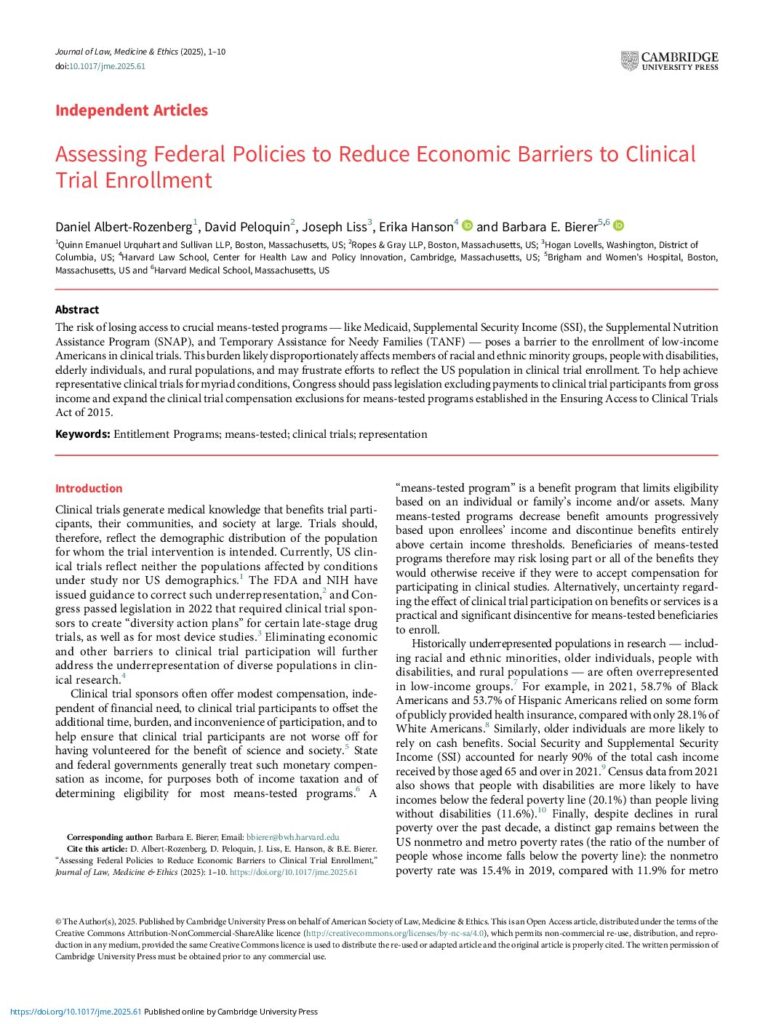Publication
Presented on: November 14, 2025
Published in: Human Gene Therapy
Carolyn Chapman, Mena Shaikh, Ava Glazier, Andrew Creamer, and Barbara Bierer published Ethical, Legal, and Social Issues (ELSI) in Human Somatic Gene Therapy Clinical Research: A Scoping Review in Human Gene Therapy. Dozens of gene therapies have been approved, and hundreds more are in development, prompting the need to better characterize the ethical, legal, and social implications (ELSI) of this emerging therapeutic class. The authors conducted a scoping review to map these issues across the literature, identifying themes related to risk–benefit assessment, engagement and communication, justice and access, ethical trial design, and the influence of financial and regulatory decision-making. The article also discusses potential approaches to address these ELSI as gene-therapy research expands.

Carolyn Riley Chapman, Mena Shaikh, Ava Glazier, Andrew Creamer, and Barbara E. Bierer Human Gene Therapy 202536:21-22, 1387-1404









